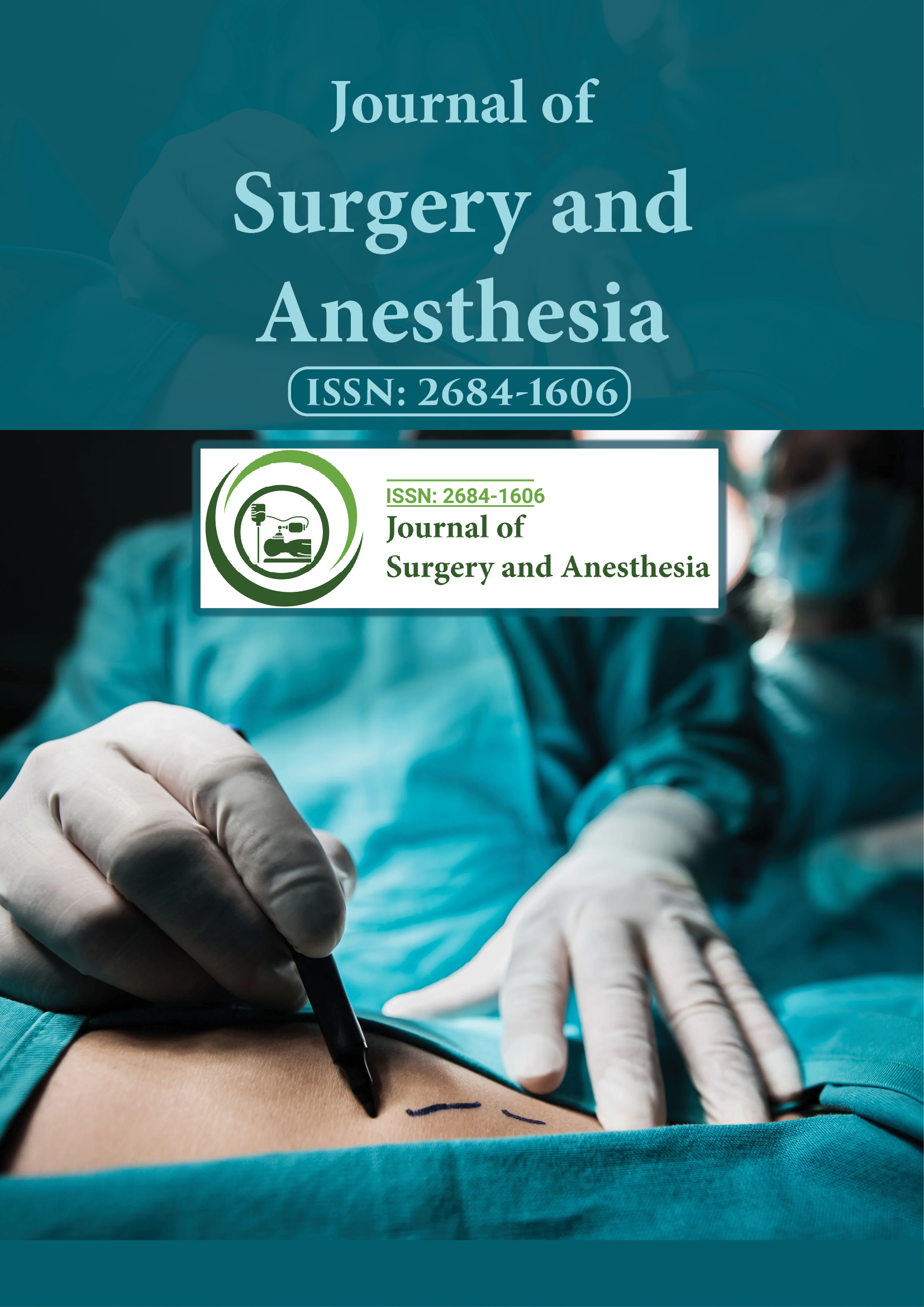Indexed In
- Google Scholar
Useful Links
Share This Page
Journal Flyer

Open Access Journals
- Agri and Aquaculture
- Biochemistry
- Bioinformatics & Systems Biology
- Business & Management
- Chemistry
- Clinical Sciences
- Engineering
- Food & Nutrition
- General Science
- Genetics & Molecular Biology
- Immunology & Microbiology
- Medical Sciences
- Neuroscience & Psychology
- Nursing & Health Care
- Pharmaceutical Sciences
Perspective - (2023) Volume 7, Issue 1
Role of Elective Surgery in Improving Quality of Life and Boosting Self-Confidence
Abdul Zalikha*Received: 22-Feb-2023, Manuscript No. JSA-23- 20604; Editor assigned: 24-Feb-2023, Pre QC No. JSA-23- 20604 (PQ); Reviewed: 10-Mar-2023, QC No. JSA-23- 20604; Revised: 17-Mar-2023, Manuscript No. JSA-23- 20604 (R); Published: 27-Mar-2023, DOI: 10.35248/2684-1606.23.7.200
Description
Elective surgery is a surgical procedure that is scheduled in advance, rather than being performed as an emergency. This type of surgery is typically considered to be non-life-threatening and may be performed to improve a patient's quality of life or address a chronic health condition. Elective surgery is commonly used to treat a range of conditions, including joint pain, hernias, gallbladder problems, and cosmetic issues. In this article, we will explore elective surgery in more detail, including its benefits, risks, and considerations for patients.
Benefits of elective surgery
One of the key benefits of elective surgery is that it allows patients to plan and prepare for their procedure, which can help reduce anxiety and stress. Patients can meet with their surgeon in advance to discuss the procedure, ask questions, and gain a better understanding of what to expect during and after the surgery. This can help patients feel more comfortable and confident going into the procedure.
Another benefit of elective surgery is that it can improve a patient's quality of life. For example, joint replacement surgery can help reduce pain and improve mobility, allowing patients to engage in activities they may have previously avoided due to discomfort. Cosmetic procedures can also help boost selfconfidence and improve a patient's overall sense of well-being.
Risks of Elective Surgery
Like any surgery, elective procedures carry some degree of risk. However, because these surgeries are typically non-lifethreatening, the risks are generally lower than those associated with emergency surgeries. Some of the risks associated with elective surgery include bleeding, infection, adverse reactions to anaesthesia, and blood clots. Patients should discuss the risks and potential complications with their surgeon before deciding whether to proceed with the surgery.
Considerations for patients
If patient are considering elective surgery, there are several factors patient should take into account before making a decision. First, patient should consider overall health and whether patient is a good candidate for surgery. Surgeon will likely perform a thorough evaluation to determine whether patient is physically and mentally prepared for the procedure.
Patient should also consider the potential benefits and risks of the surgery, as well as the expected recovery time. Some elective procedures may require a longer recovery period than others, and patient may need to take time off from work or limit activities during this time. Patient should also consider the cost of the surgery and whether it is covered by patient’s insurance.
Finally, it is important to choose a qualified and experienced surgeon who specializes in the type of surgery patient needed. Patient should ask for recommendations from primary care physician, read reviews online, and meet with potential surgeons to ask questions and get a better sense of their approach to care. Elective surgery can offer many benefits to patients, including improved quality of life and reduced pain and discomfort. However, it is important to carefully consider the potential risks and benefits before making a decision about whether to proceed with surgery. Patients should work closely with their surgeon to discuss their options, ask questions, and ensure they are physically and mentally prepared for the procedure. With careful consideration and proper preparation, elective surgery can be a safe and effective way to improve person’s health and well-being.
Citation: Zalikha A (2023) Role of Elective Surgery in Improving Quality of Life and Boosting Self-Confidence. J Surg Anesth. 7:200.
Copyright: © 2023 Zalikha A. This is an open access article distributed under the terms of the Creative Commons Attribution License, which permits unrestricted use, distribution, and reproduction in any medium, provided the original author and source are credited.
